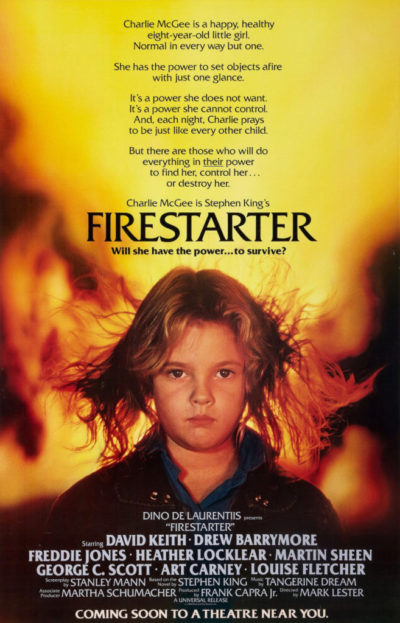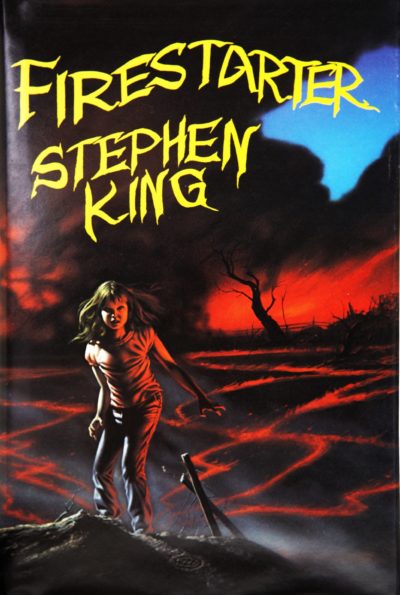★★
“For some very loose definition of super.”
 This is another one of an apparently infinite series of kung-fu films, set during the Japanese occupation of China that took place just before World War II. The heroine is Little Flower (Lee), who gets given a death-bed mission by her martial arts master father: return to Shanghai, and lead his students at the Ching Wu Men school against the occupying Japanese forces. Except, on arriving, Flower finds the school disbanded by force, and its disciples scattered to the winds. She begins to hunt the top students, Rock (Yang) and Mercury – the latter has gone particularly deep into hiding after having killed twenty Japanese soldiers in one night. But Flower’s own activities, protecting the poor, bring her to the attention of the Japanese authorities, because they think she’s part of the rebels, as well as a local Chinese cop (Heung).
This is another one of an apparently infinite series of kung-fu films, set during the Japanese occupation of China that took place just before World War II. The heroine is Little Flower (Lee), who gets given a death-bed mission by her martial arts master father: return to Shanghai, and lead his students at the Ching Wu Men school against the occupying Japanese forces. Except, on arriving, Flower finds the school disbanded by force, and its disciples scattered to the winds. She begins to hunt the top students, Rock (Yang) and Mercury – the latter has gone particularly deep into hiding after having killed twenty Japanese soldiers in one night. But Flower’s own activities, protecting the poor, bring her to the attention of the Japanese authorities, because they think she’s part of the rebels, as well as a local Chinese cop (Heung).
Sadly, it’s almost entirely dull, though in the film’s defense, the particularly poor presentation does not do it many favours. The dubbing is terrible, and the slightest movement by any of the characters is accompanied by the same, loud, whooshing noise. To say this gets old quickly, is putting it mildly. It might be forgiven were the action any great shakes: it’s not. While there are a reasonable number of fights, they are generally slow and unimaginative. The final boss is armed with a stick that must be fifteen foot long if it’s an inch. This is an impressive looking weapon, yet in order to render it effective, everyone he faces has to avoid using the obvious tactics against such an oversized monstrosity, which hardly lends itself to swift action. Still, I did genuinely laugh out loud at one point, where he catches Little Flower on the end of it, and whirls her around in the air for a bit, like an act combining plate-spinning and acrobatics from the Chinese State Circus.
On the other hand, the most woeful moment is probably when an arriving shipload of arms is blown up by the rebels. This takes place entirely off-screen, with the authorities simply hearing the sound of its massive explosion. There’s no particular sense of closure at the end, with the film going from the fight against the final boss, to “The End” credit in such an abrupt way, it feels like everyone involved must have had a very pressing engagement elsewhere. Again, however, this may be due to the lack of care in the presentation. Or perhaps not, given how lacking in particular energy or talent most elements of this appears to be. While you can’t entirely extinguish the talent of somebody like Lee, this certainly does a good job of diminishing it. The story spins off a number of threads that never seem to go anywhere, and even as someone entirely unfamiliar with 1930’s Shanghai, I wasn’t exactly convinced by its depiction here. One for Judy Lee completists only.
Dir: Min-Hsiung Wu
Star: Judy Lee, Charles Heung, Yang Lun, Cliff Ching Ching





 With the aid of her helicopter pilot sister-in-law, Sofia goes to the rig after an official rescue mission is rejected. Getting Stian out is just the start. For the oblivious authorities now plan to deal with the massive pollution threat by setting it on fire. [Hey, it is called The Burning Sea after all…] And that may not be the end of their problems either. It is relatively restrained on the destruction: despite that title, the inflammable ocean only occupies a few minutes of screen time. However, it feels considerably more grounded than most of its kind, with a ‘hard science’ basis which gives proceedings plausibility. Obvious disclaimer: I am not a geologist. However, factual accuracy aside, I respect the effort.
With the aid of her helicopter pilot sister-in-law, Sofia goes to the rig after an official rescue mission is rejected. Getting Stian out is just the start. For the oblivious authorities now plan to deal with the massive pollution threat by setting it on fire. [Hey, it is called The Burning Sea after all…] And that may not be the end of their problems either. It is relatively restrained on the destruction: despite that title, the inflammable ocean only occupies a few minutes of screen time. However, it feels considerably more grounded than most of its kind, with a ‘hard science’ basis which gives proceedings plausibility. Obvious disclaimer: I am not a geologist. However, factual accuracy aside, I respect the effort.  It’s somewhat ironic that John Carpenter was originally supposed to direct this. However, after The Thing tanked at the box-office, he was let go from the project, and replaced by the more commercially “safe” Lester. The irony being that The Thing is now regarded (rightfully) as one of the greatest scifi/horror films of all time, while this is… not. It’s very much a mid-tier Stephen King adaptation, far less well remembered than the similarly themed The Dead Zone, from around the same time. I can understand why: it’s lumbering when it needs to be taut, needlessly coming in a little shy of two hours, and only comes to life at the end, when a pissed-off Drew gets enough XP to learn her Level 3 Fireball spell.
It’s somewhat ironic that John Carpenter was originally supposed to direct this. However, after The Thing tanked at the box-office, he was let go from the project, and replaced by the more commercially “safe” Lester. The irony being that The Thing is now regarded (rightfully) as one of the greatest scifi/horror films of all time, while this is… not. It’s very much a mid-tier Stephen King adaptation, far less well remembered than the similarly themed The Dead Zone, from around the same time. I can understand why: it’s lumbering when it needs to be taut, needlessly coming in a little shy of two hours, and only comes to life at the end, when a pissed-off Drew gets enough XP to learn her Level 3 Fireball spell. Having watched both versions of the film, I followed up by reading the book on which they were based. Despite my general fondness for horror, I haven’t read very much Stephen King: this is only the second novel of his, after Salem’s Lot. First thought: at 576 pages in the mass paperback edition, it’s quite a door-stopper, and you can see the problems in adapting a work of that size into a movie. Inevitably, a lot of the detail and nuance is going to be excised. There’s no doubt, the 1984 version is more faithful; the 2022 adaptation takes the basic concept of a young girl with pyrokinetic powers, on the run from the government with her father, and does its own thing, more or less.
Having watched both versions of the film, I followed up by reading the book on which they were based. Despite my general fondness for horror, I haven’t read very much Stephen King: this is only the second novel of his, after Salem’s Lot. First thought: at 576 pages in the mass paperback edition, it’s quite a door-stopper, and you can see the problems in adapting a work of that size into a movie. Inevitably, a lot of the detail and nuance is going to be excised. There’s no doubt, the 1984 version is more faithful; the 2022 adaptation takes the basic concept of a young girl with pyrokinetic powers, on the run from the government with her father, and does its own thing, more or less. Despite generally terrible reviews, this is definitely not, by any means, a terrible movie. It is, admittedly, a fairly generic sword-and-sorcery flick, in which a hero must rise from a common background to save the world from a terrible magical threat. But it looks spiffy – the hundred million dollar budget is on the screen. If the central performance has its issues, there’s enough around the fringes to make both for an adequately entertaining experience, and also merit the existence of a review here. In particular, the main antagonist is the evil witch Mother Malkin (Moore). She escapes from the prison to which she had been confined years ago by Gregory (Bridges), now the last survivor of his order of witch-hunters.
Despite generally terrible reviews, this is definitely not, by any means, a terrible movie. It is, admittedly, a fairly generic sword-and-sorcery flick, in which a hero must rise from a common background to save the world from a terrible magical threat. But it looks spiffy – the hundred million dollar budget is on the screen. If the central performance has its issues, there’s enough around the fringes to make both for an adequately entertaining experience, and also merit the existence of a review here. In particular, the main antagonist is the evil witch Mother Malkin (Moore). She escapes from the prison to which she had been confined years ago by Gregory (Bridges), now the last survivor of his order of witch-hunters. This is set in the everyday world – but with one major tweak. Witchcraft exists, and has been outlawed in the United States by the 11th amendment. Now, government agents from the BWI seek out witches, using tried and true methods from the middle ages (the “sink test” is exactly what it sounds like), and punish those found or suspected to be practicing witchcraft. But those opposed to this have set up an “underground railroad” to smuggle the targets over the boarder to Mexico. Teenage girl Claire (Adlon) is part of one such family, courtesy of her mom Martha (Elizabeth Mitchell); Dad is out of the picture. Claire is rather ambivalent about their activism, since she just wants to fit in at school. But the arrival of Fiona (Cowen) and her little sister, siblings whose mother was burned at the stake, forces Claire out of her professed neutrality,. Especially as the investigation of the unrelenting BWI Agent Hawthorne (Camargo) gets closer to home.
This is set in the everyday world – but with one major tweak. Witchcraft exists, and has been outlawed in the United States by the 11th amendment. Now, government agents from the BWI seek out witches, using tried and true methods from the middle ages (the “sink test” is exactly what it sounds like), and punish those found or suspected to be practicing witchcraft. But those opposed to this have set up an “underground railroad” to smuggle the targets over the boarder to Mexico. Teenage girl Claire (Adlon) is part of one such family, courtesy of her mom Martha (Elizabeth Mitchell); Dad is out of the picture. Claire is rather ambivalent about their activism, since she just wants to fit in at school. But the arrival of Fiona (Cowen) and her little sister, siblings whose mother was burned at the stake, forces Claire out of her professed neutrality,. Especially as the investigation of the unrelenting BWI Agent Hawthorne (Camargo) gets closer to home. Seeing this described as “an experimental thriller,” set my alarm bells ringing. I’ve seen enough “experimental” film in my time, to realize it’s typically a code-word meaning “incoherent rubbish.” The above rating is thus partially a reflection of my relief that this did not fall into that category. You still, very definitely, have to manage your expectations here. If you go in expecting a slick, Jason Bourne style adventure, you will be sorely disappointed. For this is a no-budget entity, largely guerilla filmed by a one-man crew, and with a lead actress who has no real experience. It has already significantly surpassed all my expectations, simply through not being a total disaster.
Seeing this described as “an experimental thriller,” set my alarm bells ringing. I’ve seen enough “experimental” film in my time, to realize it’s typically a code-word meaning “incoherent rubbish.” The above rating is thus partially a reflection of my relief that this did not fall into that category. You still, very definitely, have to manage your expectations here. If you go in expecting a slick, Jason Bourne style adventure, you will be sorely disappointed. For this is a no-budget entity, largely guerilla filmed by a one-man crew, and with a lead actress who has no real experience. It has already significantly surpassed all my expectations, simply through not being a total disaster. This is likely an admirable effort in terms of its budget. The IMDb estimates it costs $100,000 and it looks like Price squeezed every cent – or, since it’s British, penny – out of that. To give you some idea, also per the IMDb, “Sections of the film were shot during the Covid-19 United Kingdom lockdown with just the occupants of the director’s flat. The director’s girlfriend doubled for any actors and WhatsApp voice notes from cast members were used for any extra lines of dialogue.” This is the kind of thing that can only be respected. Which is why I feel a little bad about having to give this an underwhelming review, because… truth be told, it’s kinda boring.
This is likely an admirable effort in terms of its budget. The IMDb estimates it costs $100,000 and it looks like Price squeezed every cent – or, since it’s British, penny – out of that. To give you some idea, also per the IMDb, “Sections of the film were shot during the Covid-19 United Kingdom lockdown with just the occupants of the director’s flat. The director’s girlfriend doubled for any actors and WhatsApp voice notes from cast members were used for any extra lines of dialogue.” This is the kind of thing that can only be respected. Which is why I feel a little bad about having to give this an underwhelming review, because… truth be told, it’s kinda boring.  A long time ago – 17 years or thereabouts! – we reviewed another Chagoyan/Fernandez production,
A long time ago – 17 years or thereabouts! – we reviewed another Chagoyan/Fernandez production, 